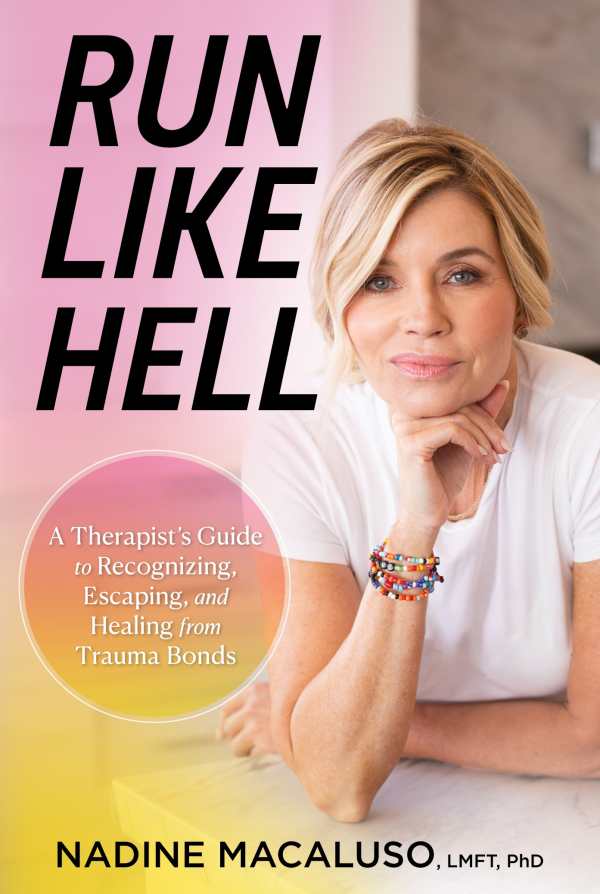Run like Hell
A Therapist's Guide to Recognizing, Escaping, and Healing from Trauma Bonds
Run like Hell is an illuminating self-help book for those healing from abusive relationships.
Nadine Macaluso’s self-help book Run like Hell concerns the specific problems that women face in and out of abusive relationships, naming strategies for overcoming traumatic experiences. Its expertise is personal, drawing on Macaluso’s infamous marriage to “Wolf of Wall Street” Jordan Belfort (portrayed by Leonardo DiCaprio in Martin Scorsese’s film)—as well as on knowledge gained from her PhD work in somatic psychotherapy.
Run like Hell aims to equip women to spot red flags in their complicated or insidious relationships. Its unique methods include introducing terms like “surthriver” (combining “survivor” and “thriver”) alongside exercises like “Jekyll and Hyde” charts that encourage survivors to understand their abusers as cruel people who employ continuous manipulation methods: here, a person’s “love-bombing good side is as pathological as [their] abusive, controlling side.” Its perspective is that trauma-bonded women are trapped by circumstances, not character flaws, and that it is “possible to recover, grow, and become whole without accepting responsibility for someone else’s toxic and cruel behavior.” Its work is embellished by content advisories, helpful visuals like the Wheel of Abuse, constant recapitulations, and a comprehensive list of resources, including crisis hotlines.
The book’s exploration of the phases of trauma bonding is logical and systematic. In addressing what it calls the sweet seduction phase, the mind-mapping phase, and the last straw, it enables understanding via illustrative scenarios that dissect how the other person acts in public and in private. And it goes into helpful depth on topics like mind mapping in the middle part of an abusive relationship cycle (here, where the abuser gathers information on their target in order to dominate and manipulate them). Its distillation of volatile topics is clear and orderly.
As informative and organized as its first half is, the book’s most helpful parts come later, when it dedicates chapters to preventing future trauma bonding. Its last chapter includes a list of questions to weed out men with red flags, such as whether someone shares his traumatic past too soon. The book also includes a list of trauma-trained treatments to support recovery, including Eye Movement Desensitization and Reprocessing (EMDR) and Somatic Experiencing. More useful still are the sections about the different styles of setting boundaries and examples of written personal manifestos, like “I request that others accept full responsibility for their experiences if they want to be in a relationship with me.” Altogether, the book’s second half is instructive when it comes to using mindful awareness to navigate strong emotions without acting them out or repressing them.
Run like Hell is an insightful, sympathetic self-help book filled with practical recommendations for trauma-bond survivors.
Reviewed by
Stephanie Marrie
Disclosure: This article is not an endorsement, but a review. The publisher of this book provided free copies of the book and paid a small fee to have their book reviewed by a professional reviewer. Foreword Reviews and Clarion Reviews make no guarantee that the publisher will receive a positive review. Foreword Magazine, Inc. is disclosing this in accordance with the Federal Trade Commission’s 16 CFR, Part 255.

